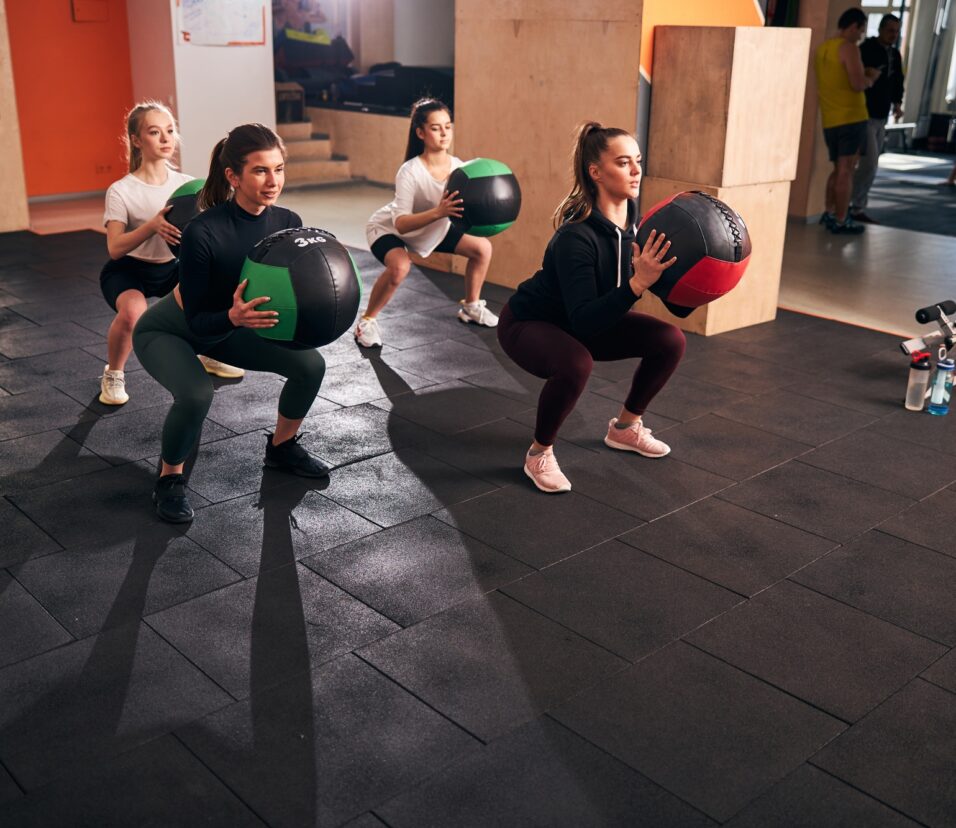⌚ Wearable Fitness Tech: Best Smartwatches & Trackers of 2025
Introduction
The fitness world is undergoing a revolution — and it’s happening right on our wrists. Wearable fitness technology has moved far beyond just counting steps. Today, smartwatches and fitness trackers can monitor heart rate, sleep quality, oxygen levels, stress, calories burned, menstrual cycles, and even provide real-time AI-powered coaching.
With 2025’s latest wearable devices, fitness tracking has become more accurate, stylish, and affordable than ever before. Whether you’re an athlete, a health-conscious professional, or just starting your fitness journey, there’s a perfect smartwatch or tracker for you.
In this detailed guide, we’ll explore the best wearable fitness tech of 2025, compare top models, highlight their pros & cons, and help you choose the right one for your lifestyle.
🔹 Why Wearable Fitness Tech Matters in 2025
The global fitness wearable market is projected to cross $150 billion by 2030, with millions of people relying on them daily. But why are smartwatches and trackers so popular?
Key Benefits:
- 📊 Data-driven fitness – real-time performance tracking
- ❤️ Health monitoring – heart, oxygen, blood pressure, stress
- 😴 Sleep optimization – track REM, deep, and light sleep cycles
- 🏃 Motivation & consistency – reminders, challenges, progress logs
- 🎯 Personalized coaching – AI-based insights for workouts and recovery
- 🌍 Lifestyle integration – notifications, music, payments, GPS navigation
In short: wearables turn your fitness into a measurable, trackable, and enjoyable lifestyle habit.
🔹 Top Features to Look for in a Fitness Wearable (2025 Edition)
Before we jump into the best smartwatches and trackers, here’s what you should check when buying:
✅ Battery life – at least 5–10 days for trackers, 1–3 days for full-featured smartwatches
✅ Health monitoring sensors – HRV, SpO2, ECG, stress, recovery
✅ Water resistance – for swimming and outdoor use
✅ GPS accuracy – essential for runners and cyclists
✅ Comfort & design – lightweight, customizable bands
✅ App ecosystem – compatibility with iOS, Android, fitness apps
✅ Price vs. features – budget-friendly vs. premium
🔹 Best Smartwatches & Trackers of 2025
Here’s the ultimate breakdown of the top-performing wearable fitness devices in 2025:
1. Apple Watch Series 10 – The Premium All-Rounder
- Best for: iPhone users, advanced health tracking
- Highlights:
- New AI Health Coach (personalized fitness & nutrition advice)
- Blood pressure monitoring
- Advanced sleep stages & stress tracking
- Seamless Apple Fitness+ integration
- Stunning always-on OLED display
💡 Why it’s great: The Apple Watch Series 10 is the most advanced smartwatch of 2025, combining style + accuracy + AI-powered health insights. Perfect if you want one device for fitness + lifestyle.
2. Samsung Galaxy Watch 7 – Best for Android Users
- Best for: Android ecosystem fans
- Highlights:
- Ultra-accurate body composition analysis
- Stress and hydration reminders
- Long-lasting battery (up to 4 days)
- Advanced GPS for runners & cyclists
- Works seamlessly with Samsung Health & Google Fit
💡 Why it’s great: A strong competitor to the Apple Watch, this is perfect for Android users who want premium features without switching ecosystems.
3. Garmin Forerunner 965 – Best for Runners & Endurance Athletes
- Best for: Marathoners, triathletes, cyclists
- Highlights:
- Ultra-accurate GPS and performance tracking
- Training readiness score based on sleep, HRV, and recovery
- Up to 20 days battery life in smartwatch mode
- Advanced running metrics (VO2 max, lactate threshold, cadence)
💡 Why it’s great: Garmin dominates endurance sports. If you’re serious about long-distance running or cycling, this is the gold standard.
4. Fitbit Charge 6 – Best Budget Fitness Tracker
- Best for: Students, beginners, casual fitness
- Highlights:
- Affordable price (~$150)
- Tracks heart rate, SpO2, stress, and sleep
- Built-in GPS (no phone needed)
- Up to 7 days battery life
- Works with Google Fit & Fitbit Premium
💡 Why it’s great: Fitbit remains the go-to budget-friendly tracker that offers reliable accuracy and great value.
5. Oura Ring Gen 4 – Best Non-Watch Wearable
- Best for: Minimalists, sleep & wellness enthusiasts
- Highlights:
- Sleek, ring-style design
- Advanced sleep monitoring (best in class)
- Stress & recovery insights
- Long-lasting battery (up to 7 days)
- Works with both iOS & Android
💡 Why it’s great: Perfect if you don’t want to wear a bulky watch but still want cutting-edge health tracking.
6. Whoop 5.0 – Best for Recovery & Performance
- Best for: Athletes focusing on recovery and performance
- Highlights:
- Tracks HRV, recovery score, strain, and sleep quality
- Subscription-based model with continuous updates
- No screen (distraction-free, all insights on app)
- Comfortable strap design
💡 Why it’s great: Whoop is ideal for elite athletes and fitness nerds who want deep recovery and training readiness insights.
🔹 Comparison Table: Best Wearables of 2025
| Device | Best For | Battery Life | Price (approx.) | Key Features |
|---|---|---|---|---|
| Apple Watch Series 10 | All-rounder, iPhone users | 2–3 days | $499+ | AI health coach, BP monitoring |
| Samsung Galaxy Watch 7 | Android users | 3–4 days | $399+ | Body comp analysis, stress tracking |
| Garmin Forerunner 965 | Runners & athletes | 20 days | $599+ | GPS, VO2 max, training readiness |
| Fitbit Charge 6 | Budget beginners | 7 days | $150 | GPS, heart rate, sleep tracking |
| Oura Ring Gen 4 | Minimalists | 7 days | $299 | Sleep & recovery insights |
| Whoop 5.0 | Recovery-focused athletes | 5 days | $30/month | HRV, recovery score, strain tracking |
🔹 How to Choose the Right Fitness Wearable
When choosing your device, ask yourself:
- Do I want all-in-one lifestyle + fitness (Apple/Samsung)?
- Do I need sports performance accuracy (Garmin)?
- Am I on a budget (Fitbit)?
- Do I value sleep & recovery insights (Oura/Whoop)?
👉 The best wearable is the one that fits your goals, budget, and ecosystem.
🔹 Future of Wearable Fitness Tech
The next 5 years will see AI-driven personalization, non-invasive glucose monitoring, mental health tracking, and AR/VR fitness coaching built into wearables.
By 2030, experts predict wearables will be able to:
- Detect early signs of diseases
- Provide real-time nutrition guidance
- Fully integrate with smart homes and AI trainers
🔹 SEO Keywords to Target
- Best smartwatches 2025
- Fitness trackers for beginners
- Wearable fitness tech review
- Apple Watch vs Samsung Watch 2025
- Best fitness wearable for athletes
- Oura Ring vs Whoop 2025
🔹 FAQs: Wearable Fitness Tech 2025
Q1: Are fitness wearables 100% accurate?
Not completely — but they provide reliable trends and insights for lifestyle improvements.
Q2: Which is better, smartwatch or fitness tracker?
- Smartwatch = more features (apps, calls, notifications)
- Tracker = lighter, longer battery, focused on health
Q3: Do wearables actually improve fitness?
Yes — by offering motivation, accountability, and progress tracking, studies show wearable users are 30% more consistent in workouts.
Q4: What is the most affordable wearable in 2025?
The Fitbit Charge 6 offers the best value under $200.
Conclusion
Wearable fitness tech in 2025 is smarter, more accurate, and more essential than ever. Whether you’re looking for premium AI-powered watches like Apple Watch Series 10, athlete-focused devices like Garmin, or budget-friendly trackers like Fitbit, there’s something for everyone.
The key is to choose based on your lifestyle goals — do you want all-day lifestyle support, marathon-level data, or just simple health tracking?
👉 No matter which device you choose, remember this: wearables are tools, not magic solutions. The real results come from consistency, balanced nutrition, recovery, and commitment to an active lifestyle.








Leave feedback about this